Introduction
Dublin City University was founded in 1980. It is a higher education institution established to adapt to the complex and diverse industries and the changing social needs. Its majors radiate to the current and future industrial and trade areas of Ireland, and its business education has had a profound impact on Ireland.
Overview
Number of students: The school currently has more than 17,000 students, of which about 20% are postgraduates, and there are students from 55 countries studying here, with a high proportion of international students.
Course settings: There are four major colleges: Business School, School of Engineering and Computer Science, School of Science and Health, and School of Humanities and Social Sciences. It offers a wealth of undergraduate and master's courses, such as accounting and finance, international business, etc. in the Business School, electronic engineering, communications engineering, etc. in the School of Engineering and Computer Science, biotechnology, nursing, etc. in the School of Science and Health, and applied linguistics and journalism, etc. in the School of Humanities and Social Sciences.
History and establishment time
Dublin City University was formerly the National Institute for Higher Education, Dublin, which was established in 1975. It began to enroll its first batch of students in 1980 and in 1989 It was officially upgraded to a university in accordance with regulations in 2000.
School Strength
Faculty: It has 624 academic staff, including many well-known scholars, such as former Irish Prime Minister John Bruton, "thinking" master Edward de Bono, etc., who have taught here and provide students with high-quality teaching and guidance.
Scientific research level: The school's successful scientific research activities are an important support for it to become a high-standard college at home and abroad. The scientific research results have been applied and recognized in many fields. For example, it has carried out in-depth research in cutting-edge fields such as information technology and biological sciences, and cooperated with enterprises and scientific research institutions to promote the transformation of scientific research results.
Teaching resources: The school has a collection of 7.5 million books and has won the Q The university has a library with a national honor, an advanced audio-visual teaching center, first-class subject laboratories, such as physics, chemistry, biotechnology, engineering, computer application and other subject laboratories, as well as newly built student activity centers, art centers, business innovation centers, etc., providing students with a good learning and living environment.
Institutional nature
Public university.
Educational philosophy
Always aiming at the needs of society and industrial and commercial enterprises, focusing on cultivating students' practical ability and comprehensive quality, so that students can better adapt to the needs of the workplace, its curriculum is closely combined with actual work needs, and 80% of the courses have paid internships or related work experience projects, so that students can accumulate practical experience in the learning process and improve their employment competitiveness.
Key laboratories and disciplines
Key disciplines: Computer science, electronic engineering, business, nursing and other disciplines are the advantageous disciplines of Dublin City University, which have a high reputation and influence both in Ireland and internationally.
Key laboratories and research centers: The school has a number of key laboratories and research centers, such as the National Institute for Digital Learning, which conduct cutting-edge research in the fields of digital education, information technology, biomedicine, etc.
Departments
The school has the following four major departments:
School of Business: Provides professional courses in accounting, finance, marketing, human resource management, etc.
School of Engineering and Computer Science: Covers disciplines such as electronic engineering, mechanical engineering, computer science, and software engineering.
School of Science and Health: Includes majors such as biotechnology, chemistry, physics, mathematics, nursing, and health sciences.
School of Humanities and Social Sciences: Has professional directions such as applied linguistics, media studies, journalism, international relations, and law.
Ranking
In the 2024 QS World University Rankings, Dublin City University ranks 436th.
In the 2025 Times Higher Education World University Rankings, the school ranks 351-400th.
Expenses
Tuition fees: The average annual tuition fee for undergraduate courses is about 8,000-10,000 euros, and the tuition fee for postgraduate courses is about 10,000-12,000 euros/year.
Living expenses: The annual living expenses are estimated to be about 8,500 euros, including daily food, clothing, housing and transportation.
Campus
Dublin City University is located in the northern suburbs of Dublin, the capital of Ireland, covering an area of 85 acres. The campus is urban-style and covers an area of 38 hectares. The campus is fully equipped with supermarkets, bookstores, travel agencies and banks. There are high-speed buses from the school to the city center, and transportation is convenient. The school's buildings include Henry Grattan Building, and there are also cultural venues such as the Spiral Theater.
-

Dublin City University
-
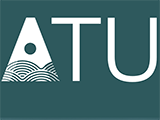
Atlantic Technological University
-
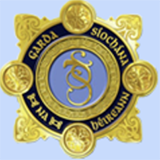
Garda Síochána College
-
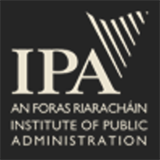
Institute of Public Administration
-
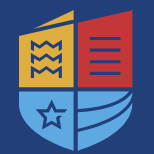
Munster Technological University
-
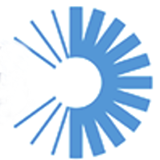
Dublin Business School
-

Maynooth University
-
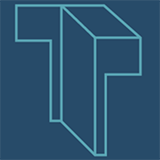
Technological University Dublin
-
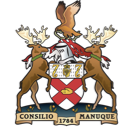
Royal College of Surgeons in Ireland
-

ICD Business School
-

Mesoamerican University
-

Istmo University
-

Mariano Galvez University of Guatemala
-

Regional University of Guatemala
-

Galileo University
-

Francisco Marroquín University
-

Rafael Landívar University
-

University of the Valley of Guatemala
-

University of San Carlos of Guatemala
-

Technological Institute of Tlaxcala Plateau
-

Golfo University
-

Technological University of South Sonora
-

Technological University of Huejotzingo
-

Tizimín Institute of Technology
-

Chilpancingo Institute of Technology
